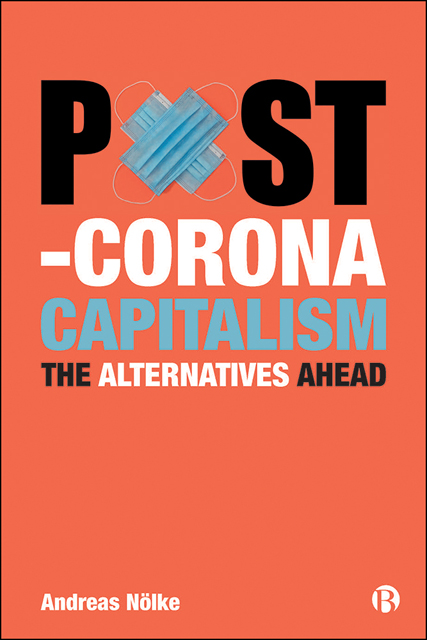Book contents
- Frontmatter
- Dedication
- Contents
- List of Abbreviations
- Acknowledgements
- Preface
- 1 Introduction: Confronting a Multidimensional Crisis of Capitalism
- Part I Capitalism and Society
- Part II Domestic Institutions of Capitalism on the Demand Side
- Part III Domestic Institutions of Capitalism on the Supply Side
- Part IV The International Institutions of Capitalism
- Part V Anthropocene Capitalism
- Part VI Geo-economic Shifts in Global Capitalism
- Part VII Ideologies in Contemporary Capitalism
- References
- Index
15 - Innovation: Frugal or Radical?
Published online by Cambridge University Press: 13 October 2022
- Frontmatter
- Dedication
- Contents
- List of Abbreviations
- Acknowledgements
- Preface
- 1 Introduction: Confronting a Multidimensional Crisis of Capitalism
- Part I Capitalism and Society
- Part II Domestic Institutions of Capitalism on the Demand Side
- Part III Domestic Institutions of Capitalism on the Supply Side
- Part IV The International Institutions of Capitalism
- Part V Anthropocene Capitalism
- Part VI Geo-economic Shifts in Global Capitalism
- Part VII Ideologies in Contemporary Capitalism
- References
- Index
Summary
The coronavirus pandemic has demonstrated the importance of technological innovations in a very forceful way; for example, with regard to vaccine development or digital services. Still, the economic crisis may negatively affect the innovation capacity of many companies. Countries will differ widely in their ability to support innovative activities. Which innovation system is best suited for post-corona capitalism? Apparently, two types of innovation systems do particularly well in the context of the pandemic – the frugal one in a context of very limited resources and a state-led radical one, particularly in liberal rich economies.
Innovation systems in Comparative Political Economy
In traditional Comparative Political Economy research on the ‘Varieties of Capitalism’ (Hall and Soskice, 2001; Vermeiren, 2021: 137–9), the core distinction is between incremental and radical innovation. Incremental innovation processes make small improvements to existing products in a continual manner. CMEs, such as Germany and Japan, are famous for this type of innovation activity, with a particular focus on well-established industrial sectors, such as automobile and machinery production. This innovation system is based on a high degree of stability, with regard to stakeholder-oriented corporate governance (see Chapter 12) and long-term bank credit, as well as consensual labour relations and massive investments in vocational skill formation (see Chapter 14). Radical innovation processes invent completely new products; for example, in biotechnology or IT. LMEs, such as the US and the UK, are assumed to be particularly successful in this regard, inter alia based on the important role of venture capital in their capital markets-based financial systems (see Chapter 13).
In many countries of the Global South, however, a third type of innovation is very important. This innovation is called ‘frugal’, since its focus is on ‘good enough’ robust and affordable products that increase the standard of living for consumers with limited financial resources (Zeschky et al, 2011). Comprehensive regulatory standards, in contrast, do not play a major role for this kind of innovation. Frugal products are made for environments with poor infrastructures and utilize readily available resources – their design is rather simple and technologically less sophisticated.
- Type
- Chapter
- Information
- Post-Corona CapitalismThe Alternatives Ahead, pp. 97 - 100Publisher: Bristol University PressPrint publication year: 2022



